 In August 2017 Alistair Findlay, acting principal teacher at Bantaskin PS began to work with primary 5, 6 and & 7 pupils on a “Good Food” project. This project developed from recommendations in the Better Eating, Better Learning document and was instigated by findings from the Healthy Living surveys which take place each year. Evidence from the 2017 survey showed that only 30% of primary 5-7 children were eating fruit daily, and only one fifth of pupils ate vegetables daily.
In August 2017 Alistair Findlay, acting principal teacher at Bantaskin PS began to work with primary 5, 6 and & 7 pupils on a “Good Food” project. This project developed from recommendations in the Better Eating, Better Learning document and was instigated by findings from the Healthy Living surveys which take place each year. Evidence from the 2017 survey showed that only 30% of primary 5-7 children were eating fruit daily, and only one fifth of pupils ate vegetables daily.
Alistair therefore saw potential to improve healthy eating habits across the school and the decision was taken to appoint a food technologist to support this aim. Alistair worked with a RACI group of colleagues to plan and teach a series of lessons which included:
- Learning about why it is important to have a balanced diet
- Learning about the Eat Well plate and recommendations
- Developing a range of skills for life including cooking & food preparation, horticulture and growing healthy ingredients for our cooking from seeds, etc.
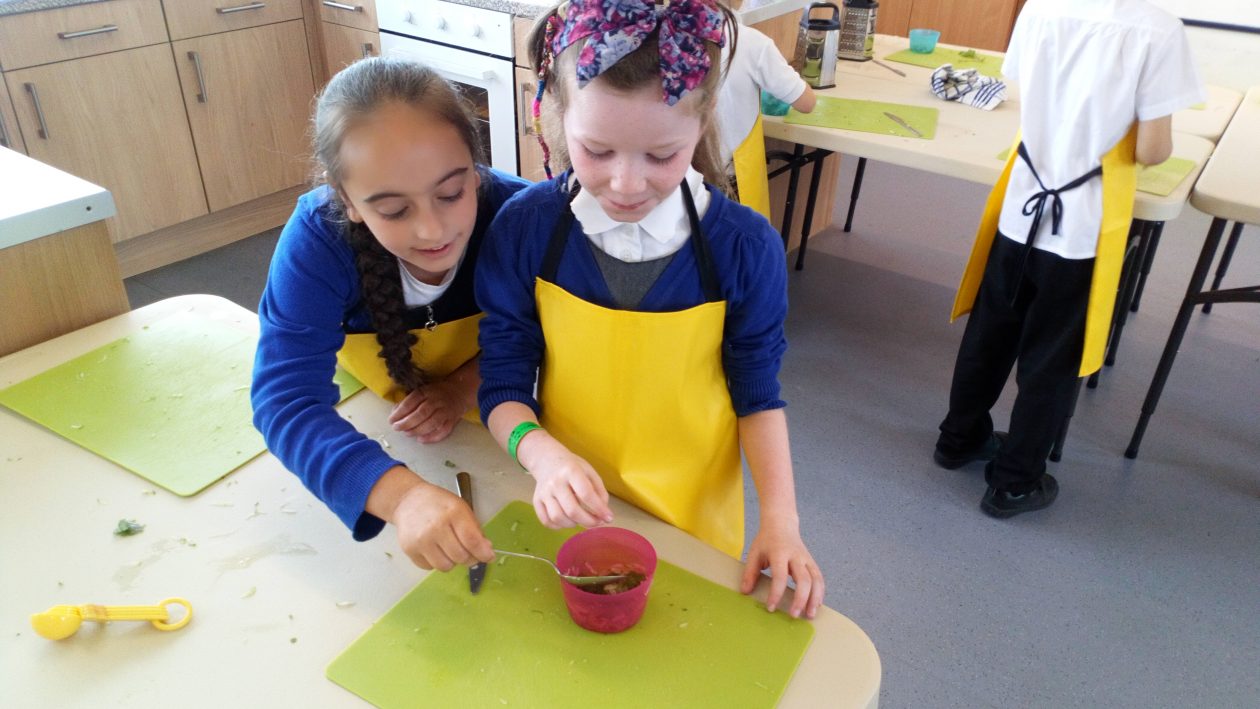
A kitchen classroom was created within school to facilitate all of this learning and ensure that the new Food and Health experiences and outcomes and benchmarks could be addressed fully. This project extended to enabling parents to become involved in developing their cooking skills and cooking healthy, affordable meals within the school, gradually gaining a REHIS Elementary Cooking Skills Certificate. Susan Kennedy, NHS, supported Alistair and the group in designing this elementary course for parents. Jennifer Robertson from Quality Meat Scotland (QMS) also supported the school by cooking with parents one afternoon – a tasty beef stir fry resulting from this collaboration. Both parents and their children took a trip to Bonnyhill Farm to see where their food came from and gain a deeper understanding of the impact of food miles. This visit was supported by collaboration with RHET (Royal Highland Education Trust).
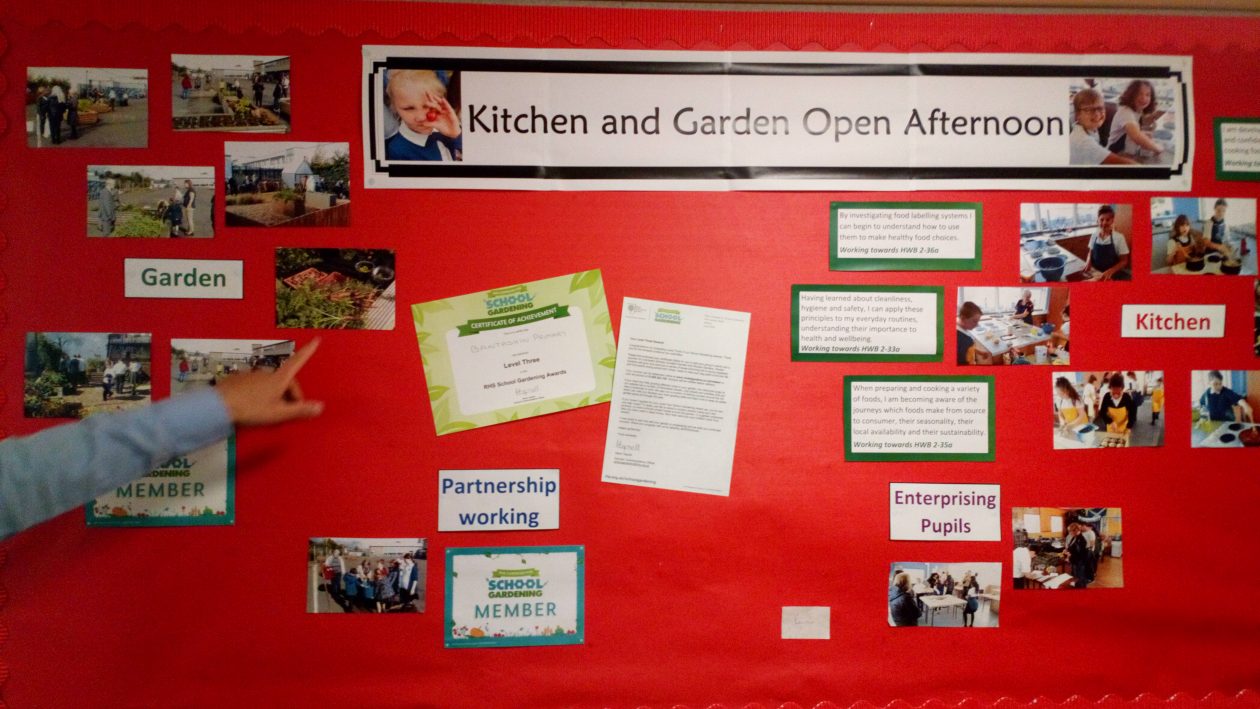
The project involved other partnership working, including Jamie Stevenson from Torwood Garden Centre who donated plants for the evolving “Growzone” – the name pupils gave to their school garden. The school also registered with the Royal Horticultural Society and within a single academic year, has achieved levels 1, 2 and 3 of the Gardening in Schools RHS Award.
A team of gardening parents and grandparents now maintain the school orchard as well as helping pupils with heavy labour required in their Growzone. The success of the Growzone also benefits from weekly input from gardening volunteer Lorraine Milligan. These collaborations have all extended pupil opportunities to develop skills beyond school and to gain a broader understanding of skills for work. In addition they have developed the ethos and life of their school as part of its community.
These collaborations have all extended pupil opportunities to develop skills beyond school and to gain a broader understanding of skills for work. In addition they have developed the ethos and life of their school as part of its community.
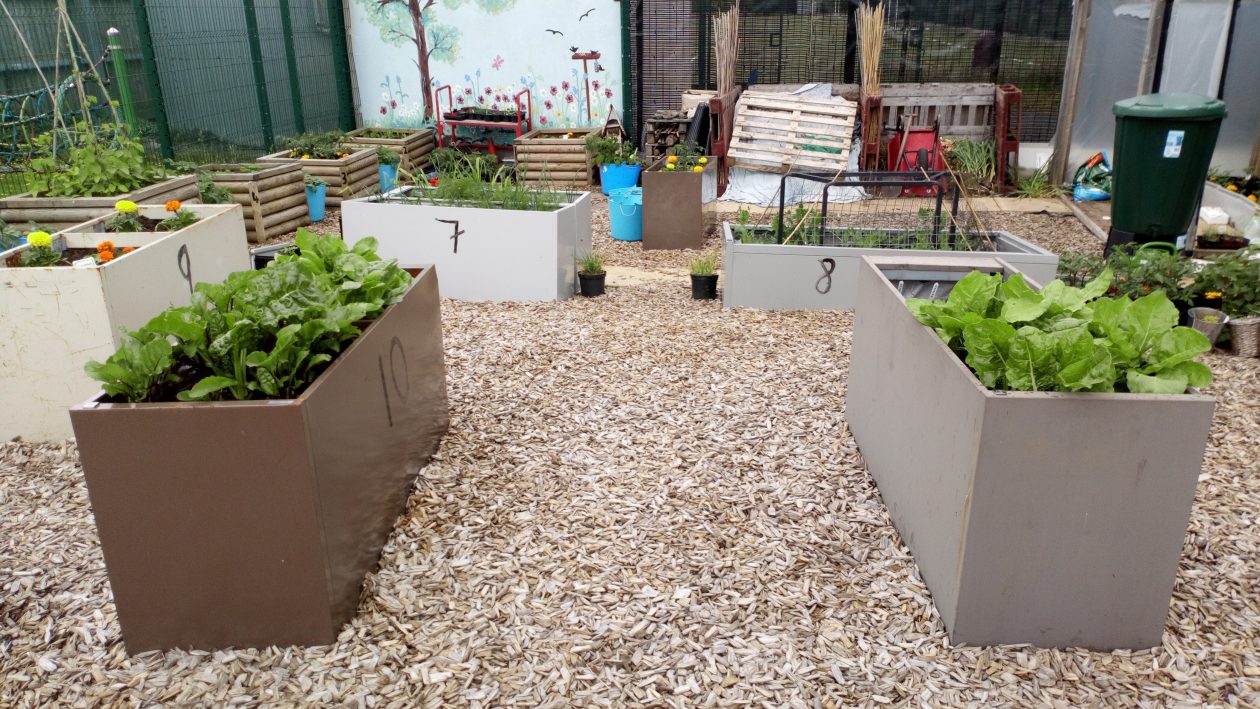
Yvonne McBlain popped in to get a flavour (no pun intended) of the impact all of this excellent work was having. She very much enjoyed seeing the school displays and awards gained, and meeting Gail Henderson, the school’s food technologist and the pupils she was working with. Primary 4 pupils had chopped & cut to make a cucumber and mint dip with the herbs from their garden. Throughout the school pupils look at and talk about their plants and garden during lunch times and breaks, they look after the garden well, pointing out when plants need water. They are also excited about harvesting their current crop and turning these into delicious meals and snacks.
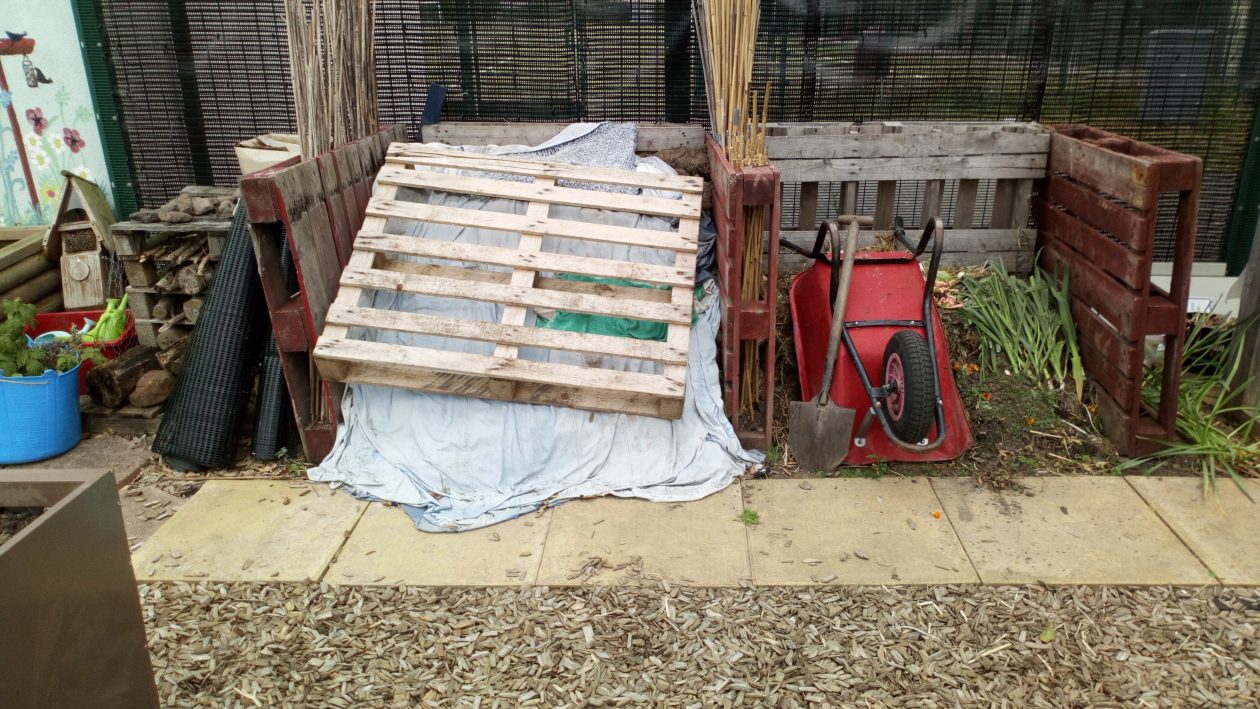
Alistair and colleagues will harvest crops which mature over the summer and preserve these in the school freezer so that pupils can use these later in the session. Plans for next year include the building of a polytunnel so that children can sow and grow their crops earlier and perhaps expand the range of things they can cultivate.
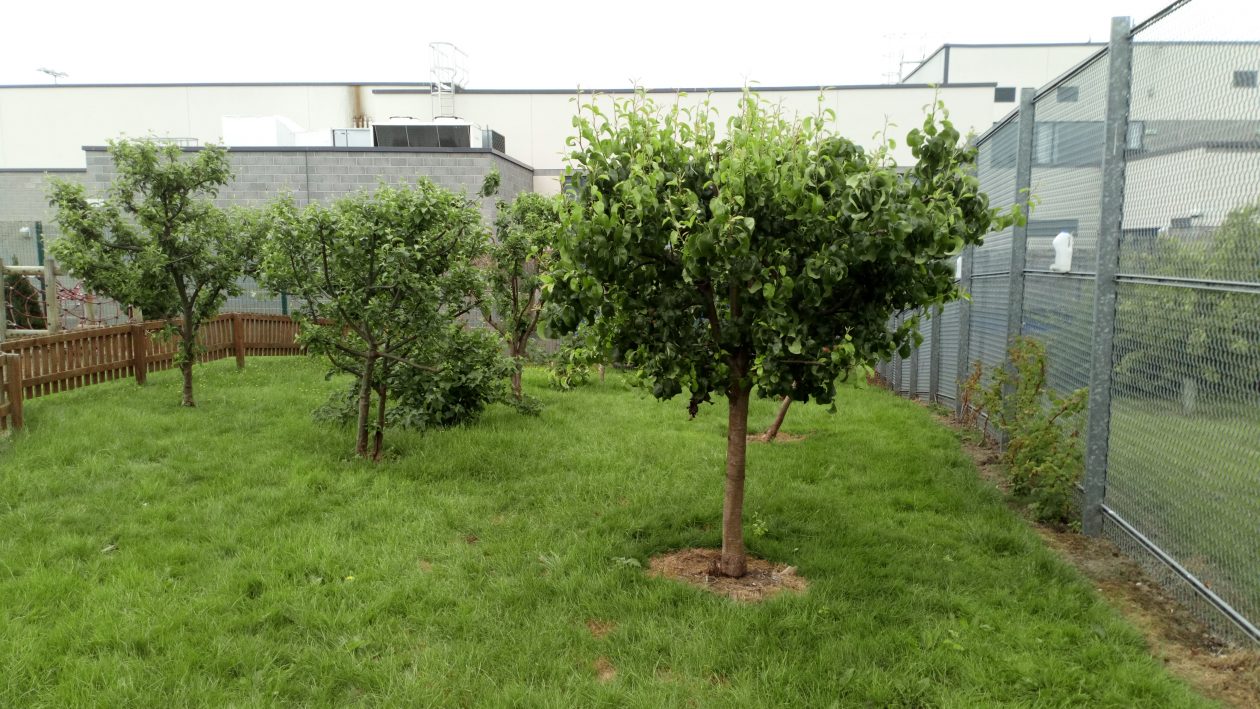

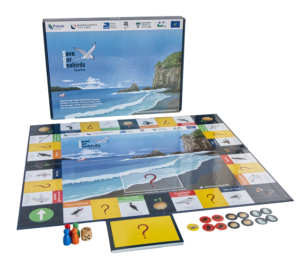

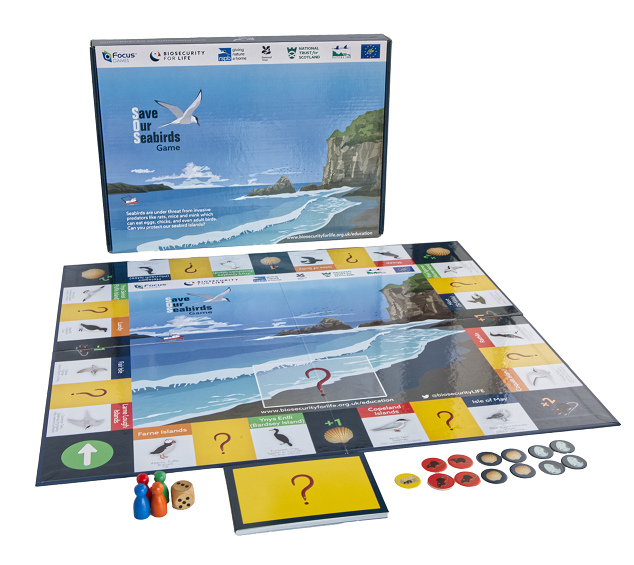
 In August 2017 Alistair Findlay, acting principal teacher at Bantaskin PS began to work with primary 5, 6 and & 7 pupils on a “Good Food” project. This project developed from recommendations in the Better Eating, Better Learning document and was instigated by findings from the Healthy Living surveys which take place each year. Evidence from the 2017 survey showed that only 30% of primary 5-7 children were eating fruit daily, and only one fifth of pupils ate vegetables daily.
In August 2017 Alistair Findlay, acting principal teacher at Bantaskin PS began to work with primary 5, 6 and & 7 pupils on a “Good Food” project. This project developed from recommendations in the Better Eating, Better Learning document and was instigated by findings from the Healthy Living surveys which take place each year. Evidence from the 2017 survey showed that only 30% of primary 5-7 children were eating fruit daily, and only one fifth of pupils ate vegetables daily.




![WP_20151204_001[1]](https://blogs.glowscotland.org.uk/fa/public/lfsfalkirk/uploads/sites/2215/2015/12/WP_20151204_0011.jpg)
